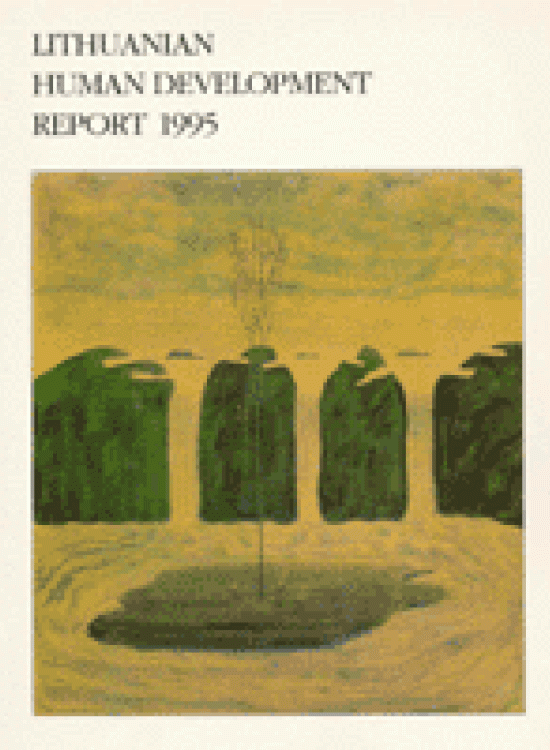General Human Development Report 1995 Lithuania

UNDP (United Nations Development Programme). 1995. General Human Development Report 1995 Lithuania. New York.
General Human Development Report 1995 Lithuania
The Report concludes with a number of observations which indicate that while progress is being made, the transition process in Lithuania has met with a number of problems: Development of democracy: Substantial progress has been made in developing a democratic society. All the main prerequisites such as a multi-party system, free elections, free press and freedom of speech, have been introduced Although weaknesses include political fragmentation, over-centralized Government and the lack of strong NGOs, in addition, lack of money hinders access to information. Economic reform: The past few years have brought acute economic problems, including rampant inflation and a sharp drop in production. The worst problems now appear to be over, and the macro-economic position is stable, although industry still desperately needs modernization. Social problems: As a result of transition and the economic crisis, new social problems such as poverty and unemployment have emerged. Incomes are polarizing and becoming increasingly insecure. Taxation policies exacerbate the income disparity. Education and health: Both these systems suffer from their past legacy, and from economic constraints. Education must adapt to provide new skills, but is losing teachers and prestige. Health problems have increased during transition, but the health system lacks funding and needs reforming. Social safety net: The Government is working to establish a comprehensive safety net and has recently reformed the pension system. The task is to ensure that any new measures alleviate the current urgent problems, while at the same time laying the foundation for a mature market economy.